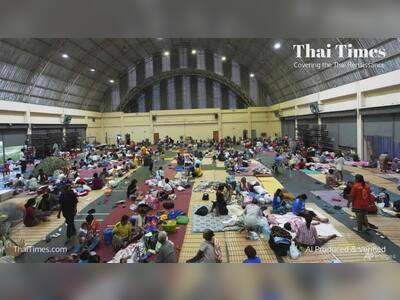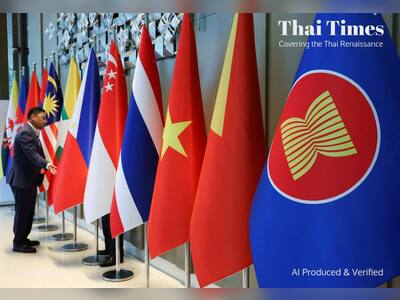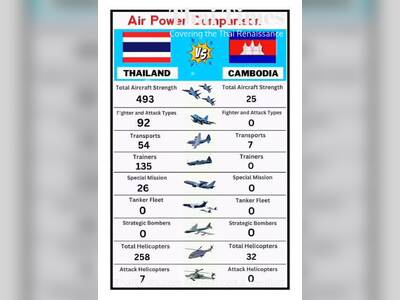Lies, Fabrications, and a Shocking Suicide: The Scientific Scandal That Shook the World
It seemed like a story destined to end with a Nobel Prize. Haruko Obokata, a young Japanese scientist, presented a groundbreaking study on stem cells that promised to revolutionize medicine. Her peers were thrilled, the media hailed her as a rising star, and even Japan’s Prime Minister joined the chorus of praise. But when the house of cards collapsed and the massive fraud was exposed, Obokata was exiled from the world of science — yet even that paled in comparison to the terrible price paid by the mentor who supported her.
It was one of those rare discoveries that breaks the boundaries of the insular scientific community. A 2014 study on stem cells by young Japanese scientist Haruko Obokata catapulted her overnight into the ranks of global science superstars — and even something of a national hero. Then-Prime Minister Shinzo Abe publicly praised her in parliament and pledged to build a “nation of the world’s smartest women.”
Obokata’s supposed discovery was electrifying. At just 30 years old, she claimed to have developed a simple, revolutionary method for generating STAP cells — stimulus-triggered acquisition of pluripotency — stem cells that could develop into any tissue in the body through simple stimulation. Using mice, she demonstrated how ordinary somatic cells, such as mouse blood cells, could be transformed into something very similar to embryonic stem cells.
In medicine, stem cells hold immense importance due to their ability to become any other type of tissue. The potential for treating heart attacks, restoring vision, and even growing entire organs makes stem cell research a top global priority.
A Rising Star
At first, everyone was cheering. Her method seemed much simpler than existing techniques for producing pluripotent stem cells. Prestigious scientists hailed it as a “game changer.” Some even compared her to Nobel laureate Shinya Yamanaka, another Japanese scientist who showed that adult skin cells could be “reprogrammed” into embryonic-like stem cells.
Media outlets and TV shows celebrated Obokata’s rare success, emphasizing her status as a young woman thriving in a field dominated by men. But her 15 minutes of fame didn’t last long.
The Fall from Grace
Soon, the painful truth exploded into public view. Obokata’s promising research turned out to be pure fiction. The affair would be remembered as one of the most disgraceful scientific frauds of recent decades — one that led to her total banishment from the scientific community and ultimately claimed the life of one of her colleagues.
A committee appointed by the RIKEN Center for Developmental Biology, led by Dr. Shunsuke Ishii, investigated the matter and concluded that Obokata had committed scientific fraud. The charges were serious: parts of her published article in Nature were plagiarized from other works, images were manipulated, and data was altered in misleading ways.
Despite attempts to defend herself, Obokata’s downfall was swift. At a press conference in Osaka, tearful and overwhelmed, she tried to justify her research before a swarm of reporters. Yet alongside her emotional defense, she also issued a partial apology. She admitted her efforts had fallen short and blamed her failures on a lack of preparation and experience. She acknowledged methodological errors and sloppy data management, attributing them to her inexperience.
Shortly thereafter, Nature retracted both of her published articles. The scientific world was shaken, and RIKEN — one of Japan’s most prestigious research institutions — suffered a major blow to its reputation. Senior scientists involved in the project resigned one after another. In December 2014, Obokata herself was fired. By then, her tone had changed: “I am ashamed to the depths of my soul. I can't even find the words to apologize.”
A Tragedy Within a Scandal
But the professional price Obokata paid was nothing compared to what befell Dr. Yoshiki Sasai, a respected stem cell scientist and one of her mentors. Plunged into severe depression by the scandal and overwhelmed by shame, Dr. Sasai was hospitalized for three months before ultimately taking his own life. He hanged himself with a rope, leaving behind three suicide notes whose contents were never disclosed. He was 52 years old.
RIKEN spokesperson Satoru Kagaya recalled that Sasai’s condition deteriorated rapidly after the scandal broke. “He seemed exhausted — I could hear it even in our phone conversations.” Kagaya told AFP that Obokata was stunned by Sasai’s tragic death, which led to a serious decline in her health and her subsequent hospitalization.
The Aftermath
Since then, Obokata has disappeared from the public eye. In 2016, her Ph.D. from Waseda University was revoked after it was found to contain plagiarized content. Attempts by other scientists to replicate her results using rigorous, scientific methods all failed.
A well-known adage states that “sunlight is the best disinfectant,” implying that transparency purifies misconduct. Yet in this case, the Obokata scandal may have had the opposite effect. Dr. Eisuke Enoki, a pathologist at Kinki University, told The Japan Times that the case may have made other institutions more hesitant to report research fraud. “While institutions do conduct preliminary investigations when fraud is suspected, they often release little information and settle for stating that the researchers were found not guilty of misconduct,” Enoki explained.
A Push for Reform
Japan’s Ministry of Science and Technology issued a series of guidelines on research misconduct in response to the STAP cells scandal. These guidelines called for heavy penalties for fraud, including plagiarism and data fabrication, such as returning research funds and being barred from future grants. Institutions are also now required to provide ethics training to researchers before they can apply for public funding.
Dr. Satoshi Tanaka of Kyoto’s College of Pharmacy distinguishes between ethics and integrity. “Ethics tells people not to do bad things — like don’t steal, don’t kill. Integrity, on the other hand, is about professionalism.” He observed that many Japanese researchers caught for misconduct were medical doctors who had never been taught how to handle biological data properly. “They begin writing papers after becoming doctors, but no one trains them in data management,” he said.
A Deeper Problem in Global Science
Both Enoki and Tanaka agree that academic research has grown more competitive in recent years, particularly due to funding constraints. This pressure often pushes scientists to publish more — sometimes at any cost.
Japan is not alone in facing a “publish or perish” culture. Technology has made academic dishonesty easier. The website Retraction Watch reported nearly 100 scientific articles that appear to have been written, at least in part, using ChatGPT. One paper published in Surfaces and Interfaces even went viral for beginning with a phrase commonly used by ChatGPT.
In 2021, over 2 million scientific papers were published in the natural sciences — compared to 400,000 in 1981 and 1.4 million in 2014. “There are far more low-quality journals today, including those that allow researchers to publish simply by paying,” said Enoki.
Dr. Tanaka estimates that about 20% of scientific papers globally contain some form of data irregularity. In light of growing concerns — and the belief that we are only seeing the tip of the iceberg — there are increasing calls for a new system to evaluate researchers’ work. Currently, the most common metric is the impact factor, which measures how often an article is cited in a given year.
A Case of Fame Turned Infamy
The Obokata affair stands out not only because of the deception — but because of how unsophisticated it was. She made no real effort to conceal her fraud, a fact that only deepened the embarrassment of Nature’s editors, who wondered how they could have been so easily misled by a young scientist.
In the end, the very fame Obokata so eagerly embraced became her downfall. The media spotlight triggered deeper scrutiny, which ultimately exposed the fraud. Instead of becoming a decorated scientist and role model, Haruko Obokata’s name is now a cautionary tale — a symbol of everything a researcher should never do.
Obokata’s supposed discovery was electrifying. At just 30 years old, she claimed to have developed a simple, revolutionary method for generating STAP cells — stimulus-triggered acquisition of pluripotency — stem cells that could develop into any tissue in the body through simple stimulation. Using mice, she demonstrated how ordinary somatic cells, such as mouse blood cells, could be transformed into something very similar to embryonic stem cells.
In medicine, stem cells hold immense importance due to their ability to become any other type of tissue. The potential for treating heart attacks, restoring vision, and even growing entire organs makes stem cell research a top global priority.
A Rising Star
At first, everyone was cheering. Her method seemed much simpler than existing techniques for producing pluripotent stem cells. Prestigious scientists hailed it as a “game changer.” Some even compared her to Nobel laureate Shinya Yamanaka, another Japanese scientist who showed that adult skin cells could be “reprogrammed” into embryonic-like stem cells.
Media outlets and TV shows celebrated Obokata’s rare success, emphasizing her status as a young woman thriving in a field dominated by men. But her 15 minutes of fame didn’t last long.
The Fall from Grace
Soon, the painful truth exploded into public view. Obokata’s promising research turned out to be pure fiction. The affair would be remembered as one of the most disgraceful scientific frauds of recent decades — one that led to her total banishment from the scientific community and ultimately claimed the life of one of her colleagues.
A committee appointed by the RIKEN Center for Developmental Biology, led by Dr. Shunsuke Ishii, investigated the matter and concluded that Obokata had committed scientific fraud. The charges were serious: parts of her published article in Nature were plagiarized from other works, images were manipulated, and data was altered in misleading ways.
Despite attempts to defend herself, Obokata’s downfall was swift. At a press conference in Osaka, tearful and overwhelmed, she tried to justify her research before a swarm of reporters. Yet alongside her emotional defense, she also issued a partial apology. She admitted her efforts had fallen short and blamed her failures on a lack of preparation and experience. She acknowledged methodological errors and sloppy data management, attributing them to her inexperience.
Shortly thereafter, Nature retracted both of her published articles. The scientific world was shaken, and RIKEN — one of Japan’s most prestigious research institutions — suffered a major blow to its reputation. Senior scientists involved in the project resigned one after another. In December 2014, Obokata herself was fired. By then, her tone had changed: “I am ashamed to the depths of my soul. I can't even find the words to apologize.”
A Tragedy Within a Scandal
But the professional price Obokata paid was nothing compared to what befell Dr. Yoshiki Sasai, a respected stem cell scientist and one of her mentors. Plunged into severe depression by the scandal and overwhelmed by shame, Dr. Sasai was hospitalized for three months before ultimately taking his own life. He hanged himself with a rope, leaving behind three suicide notes whose contents were never disclosed. He was 52 years old.
RIKEN spokesperson Satoru Kagaya recalled that Sasai’s condition deteriorated rapidly after the scandal broke. “He seemed exhausted — I could hear it even in our phone conversations.” Kagaya told AFP that Obokata was stunned by Sasai’s tragic death, which led to a serious decline in her health and her subsequent hospitalization.
The Aftermath
Since then, Obokata has disappeared from the public eye. In 2016, her Ph.D. from Waseda University was revoked after it was found to contain plagiarized content. Attempts by other scientists to replicate her results using rigorous, scientific methods all failed.
A well-known adage states that “sunlight is the best disinfectant,” implying that transparency purifies misconduct. Yet in this case, the Obokata scandal may have had the opposite effect. Dr. Eisuke Enoki, a pathologist at Kinki University, told The Japan Times that the case may have made other institutions more hesitant to report research fraud. “While institutions do conduct preliminary investigations when fraud is suspected, they often release little information and settle for stating that the researchers were found not guilty of misconduct,” Enoki explained.
A Push for Reform
Japan’s Ministry of Science and Technology issued a series of guidelines on research misconduct in response to the STAP cells scandal. These guidelines called for heavy penalties for fraud, including plagiarism and data fabrication, such as returning research funds and being barred from future grants. Institutions are also now required to provide ethics training to researchers before they can apply for public funding.
Dr. Satoshi Tanaka of Kyoto’s College of Pharmacy distinguishes between ethics and integrity. “Ethics tells people not to do bad things — like don’t steal, don’t kill. Integrity, on the other hand, is about professionalism.” He observed that many Japanese researchers caught for misconduct were medical doctors who had never been taught how to handle biological data properly. “They begin writing papers after becoming doctors, but no one trains them in data management,” he said.
A Deeper Problem in Global Science
Both Enoki and Tanaka agree that academic research has grown more competitive in recent years, particularly due to funding constraints. This pressure often pushes scientists to publish more — sometimes at any cost.
Japan is not alone in facing a “publish or perish” culture. Technology has made academic dishonesty easier. The website Retraction Watch reported nearly 100 scientific articles that appear to have been written, at least in part, using ChatGPT. One paper published in Surfaces and Interfaces even went viral for beginning with a phrase commonly used by ChatGPT.
In 2021, over 2 million scientific papers were published in the natural sciences — compared to 400,000 in 1981 and 1.4 million in 2014. “There are far more low-quality journals today, including those that allow researchers to publish simply by paying,” said Enoki.
Dr. Tanaka estimates that about 20% of scientific papers globally contain some form of data irregularity. In light of growing concerns — and the belief that we are only seeing the tip of the iceberg — there are increasing calls for a new system to evaluate researchers’ work. Currently, the most common metric is the impact factor, which measures how often an article is cited in a given year.
A Case of Fame Turned Infamy
The Obokata affair stands out not only because of the deception — but because of how unsophisticated it was. She made no real effort to conceal her fraud, a fact that only deepened the embarrassment of Nature’s editors, who wondered how they could have been so easily misled by a young scientist.
In the end, the very fame Obokata so eagerly embraced became her downfall. The media spotlight triggered deeper scrutiny, which ultimately exposed the fraud. Instead of becoming a decorated scientist and role model, Haruko Obokata’s name is now a cautionary tale — a symbol of everything a researcher should never do.
















